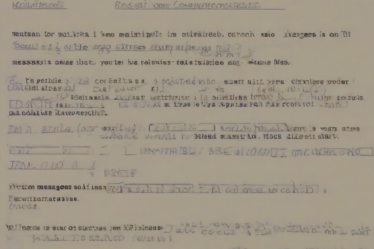
Finding the Right Stocks Broker Near You: A Comprehensive Guide
The world of stock brokerage can seem daunting, especially when starting. With countless firms offering a variety of services, choosing the right broker can significantly impact your investment journey. This guide focuses on helping you find a reputable stocks broker near you, considering factors beyond mere proximity.
Understanding Your Needs: Before the Search Begins
Before embarking on your search for a local stocks broker, it’s crucial to understand your specific needs and investment goals. Consider these key factors:
- Investment Experience: Are you a seasoned investor or just starting? This will dictate the level of support and guidance you require.
- Investment Style: Do you prefer active trading, long-term investing, or a blend of both? Different brokers cater to different investment styles.
- Investment Goals: What are you hoping to achieve with your investments? Retirement planning, buying a house, or something else? Your goals will influence your investment strategy and broker selection.
- Budget: How much capital are you working with? Some brokers charge higher fees than others, and minimum account balances may apply.
- Trading Platform Preferences: Do you prefer a user-friendly online platform, mobile app, or traditional in-person interaction?
- Research & Educational Resources: Do you need access to market research, investment tools, or educational resources? Some brokers provide comprehensive resources while others offer minimal support.
Locating Potential Brokers: Online and Offline Strategies
Finding a stocks broker “near me” can involve both online and offline research. Here’s a multi-pronged approach:
- Online Search Engines: Utilize search engines like Google, Bing, or DuckDuckGo. Search for terms like “stocks broker near me,” “discount broker near me,” or “full-service broker near me,” specifying your city or zip code for localized results.
- Online Brokerage Directories: Several websites provide directories of brokerage firms, often allowing filtering by location and other criteria.
- Financial Advisor Networks: Consider contacting financial advisor networks in your area. They can often recommend reputable local brokers who align with your investment needs.
- Local Banks and Credit Unions: Many banks and credit unions offer brokerage services. Check with your local branch to see if they provide investment options.
- Networking: Talk to friends, family, or colleagues who invest in the stock market. They might recommend brokers they’ve had positive experiences with.
- Professional Organizations: Look for local chapters of financial planning or investment professional organizations. They may be able to provide referrals or resources.
Evaluating Potential Brokers: Key Considerations
Once you’ve identified a few potential brokers, thoroughly evaluate them using these criteria:
- Fees and Commissions: Compare brokerage fees, including commissions, account maintenance fees, and any other charges. Understand the fee structure clearly before opening an account.
- Account Minimums: Check if the broker requires a minimum account balance. This can significantly limit access for smaller investors.
- Investment Options: Ensure the broker offers access to the types of investments you’re interested in (stocks, bonds, ETFs, mutual funds, options, etc.).
- Trading Platform: Test the trading platform’s usability, speed, and features. A user-friendly platform is crucial for efficient trading.
- Research and Tools: Assess the quality and comprehensiveness of the broker’s research tools, charting capabilities, and educational resources.
- Customer Service: Investigate the broker’s customer service reputation. Read online reviews and check for responsiveness and helpfulness.
- Security and Regulation: Ensure the broker is registered with the relevant regulatory bodies (e.g., the Securities and Exchange Commission (SEC) in the US) and maintains robust security measures to protect your investments.
- Financial Stability: Research the broker’s financial stability and track record. Look for a firm with a strong reputation and a history of responsible business practices.
Full-Service vs. Discount Brokers: Choosing the Right Fit
Brokers generally fall into two categories: full-service and discount brokers. Understanding the differences is key:
- Full-Service Brokers: Offer comprehensive services including personalized financial advice, investment research, and portfolio management. They typically charge higher fees.
- Discount Brokers: Provide basic brokerage services with lower fees, often focusing on online trading platforms. They usually offer less personalized advice.
The best choice depends on your investment experience and needs. Beginners might benefit from a full-service broker’s guidance, while experienced investors may prefer the lower costs of a discount broker.
Understanding Brokerage Accounts: Different Types and Features
Different types of brokerage accounts cater to specific needs and investment goals:
- Individual Accounts: Standard accounts for individual investors.
- Joint Accounts: Accounts held by two or more individuals.
- Retirement Accounts (IRAs, 401(k)s): Tax-advantaged accounts for retirement savings.
- Custodial Accounts: Accounts managed on behalf of a minor.
- Trust Accounts: Accounts held in trust for a beneficiary.
Carefully consider the features and tax implications of each account type before making a decision.
Due Diligence: Checking Brokerage Reviews and Ratings
Before committing to a broker, conduct thorough due diligence. This includes:
- Reading Online Reviews: Check independent review sites like BrokerChooser, Investopedia, and others for user feedback on the broker’s services and customer support.
- Checking Brokerage Ratings: Look for ratings from reputable financial publications and rating agencies.
- Scrutinizing Brokerage Fees: Compare fee structures carefully, ensuring you understand all charges.
- Verifying Regulatory Compliance: Confirm the broker is registered with the appropriate regulatory bodies.
The Importance of Transparency and Communication
Choose a broker that prioritizes transparency and open communication. You should feel comfortable asking questions and receiving clear, concise answers.
- Clear Fee Schedules: The broker should provide a clear and easily understandable fee schedule.
- Accessible Customer Support: Reliable and responsive customer support is essential.
- Regular Account Statements: You should receive regular and accurate account statements.
- Open Communication Channels: The broker should provide multiple channels for communication (phone, email, online chat).
Avoiding Scams and Fraudulent Brokers
Be wary of brokers who make unrealistic promises of high returns with little or no risk. Red flags include:
- Guaranteed High Returns: No legitimate investment guarantees high returns without significant risk.
- High-Pressure Sales Tactics: Legitimate brokers don’t use high-pressure tactics to persuade you to invest.
- Unregistered or Unlicensed Brokers: Always verify the broker’s registration and licensing status.
- Lack of Transparency: Be cautious of brokers who are unclear about their fees or investment strategies.
If something feels off, it’s best to err on the side of caution and seek a second opinion from a trusted financial advisor.


